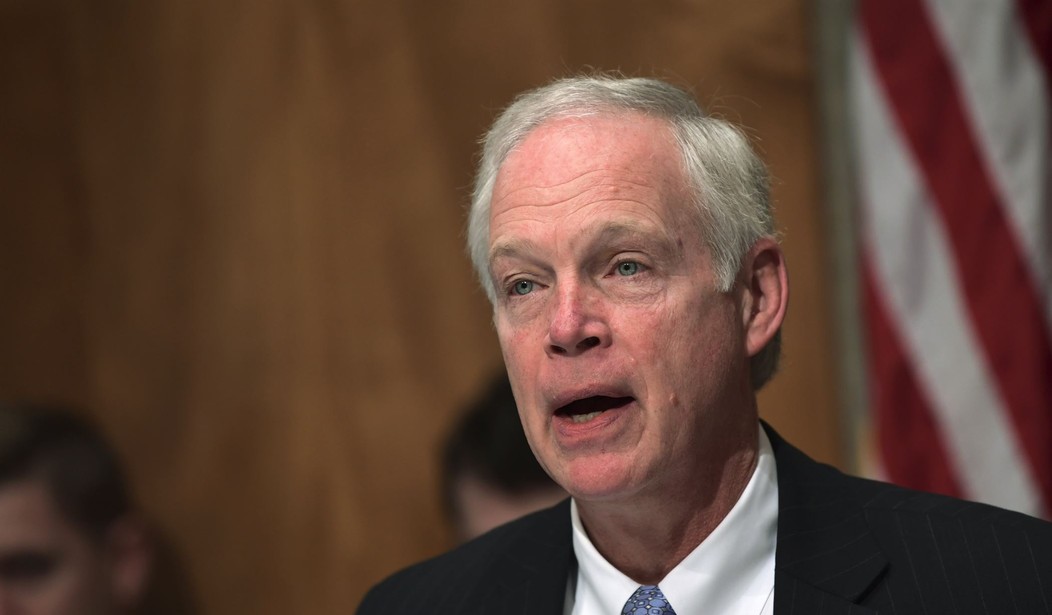There is an irony in the fact that Ron Johnson is the guy who will carry the mantle forward for the Republican Party in Wisconsin. Even he admits that.
"I kind of sprang out of the tea party movement and was sort of a grassroots guy," says Sen. Johnson about his entry into politics a decade ago. "First public speech I'd ever given was in October 2009. And people came up to me afterwards and said, 'Hey, I liked your speech. Why don't you run for office?' My reply was always pretty consistent. I said, 'Because I'm not crazy.' Then, they passed Obamacare, and I started thinking about it."
In short order, he entered the Senate race, picked up endorsements from the grassroots and establishment alike, and easily carried the nomination.
Six months later, he was part of a percolating populist conservative movement that swept the Democrats out of power in the formerly blue state. Johnson unseated Democratic Sen. Russ Feingold, and Republican Scott Walker took the governorship from the Democrats, while Republicans took control of both the state Assembly and Senate, held the state attorney general's office, swung the state treasurer's office and took two congressional seats long held by Democrats.
Not long after, Janesville Rep. Paul Ryan would be named chairman of the House Ways and Means Committee and then become the vice presidential nominee. Wisconsin GOP Chairman Reince Priebus would become chairman of the national Republican Party.
Following the 2010 election, Wisconsin's GOP was the beating heart of the national GOP.
Now almost 10 years later, Walker lost his bid for a third term last November; Ryan, who rose to speaker of the House, is now leaving Congress; and Priebus has been chased out of Trump's White House.
That leaves one guy standing to steer the Midwest conservative movement back into power -- or at least be the face of it. That is Johnson.
He says of the 2018 midterms: "I went to bed on election night. ... Scott Walker was pulling ahead and just had the out counties, which we normally win. So, I was pretty confident he was going to win, kind of breathed a sigh of relief, never went to sleep. But I got a text. It was called ... for his opponent. One of my first thoughts was, other than the expletive, was 'I am last man standing.' And I have a unique responsibility, which I take seriously."
Recommended
Johnson says he has Priebus giving him advice on how to reassess the way forward, but he is adamant that returning does not begin or end at the top.
He explained: "The postmortem is that I'm making calls all the time, and we have a pretty robust effort right now. But the feedback is pretty consistent. The campaigns were very top-down, and they weren't listening to people. Long-term volunteers that had worked their tail off for me kind of gave up and said, 'Yeah, it's not worth it.'"
His plan to re-energize the grassroots effort began with him personally calling the county chairmen in the state just before Christmas. "It is important to engage them early and often during this process," he says. "The input is so consistent from what we need to do. I keep referring to it as trickle-up elections. Rather than top-down, all senators talk about one person. I mean, we need to return to the Republican Party of Wisconsin and a party that supports all Republican candidates and helps recruit candidates but supports them in all levels, local, county."
Johnson says in leading the rebuilding, he is going to do what Wisconsin conservatives do well: work together. In short, this state has always been the robust epicenter of the modern populist conservative movement because the establishment, the tea party and talk radio have always avoided the GOP civil wars that have plagued the national scene. Johnson not only gets that; he is banking on that.
His critical test will be the state Supreme Court race in April 2020. "It will occur during the presidential primary, and if we got a nominee and they don't, it's really going to be difficult to win that, and that could flip the court," he says.
Seven months after that first test comes the presidential election. Johnson strikes you as the guy who doesn't want to be the accidental leader of a movement who loses the big game.
Salena Zito is a CNN political analyst, and a staff reporter and columnist for the Washington Examiner. She reaches the Everyman and Everywoman through shoe-leather journalism, traveling from Main Street to the beltway and all places in between.

























Join the conversation as a VIP Member